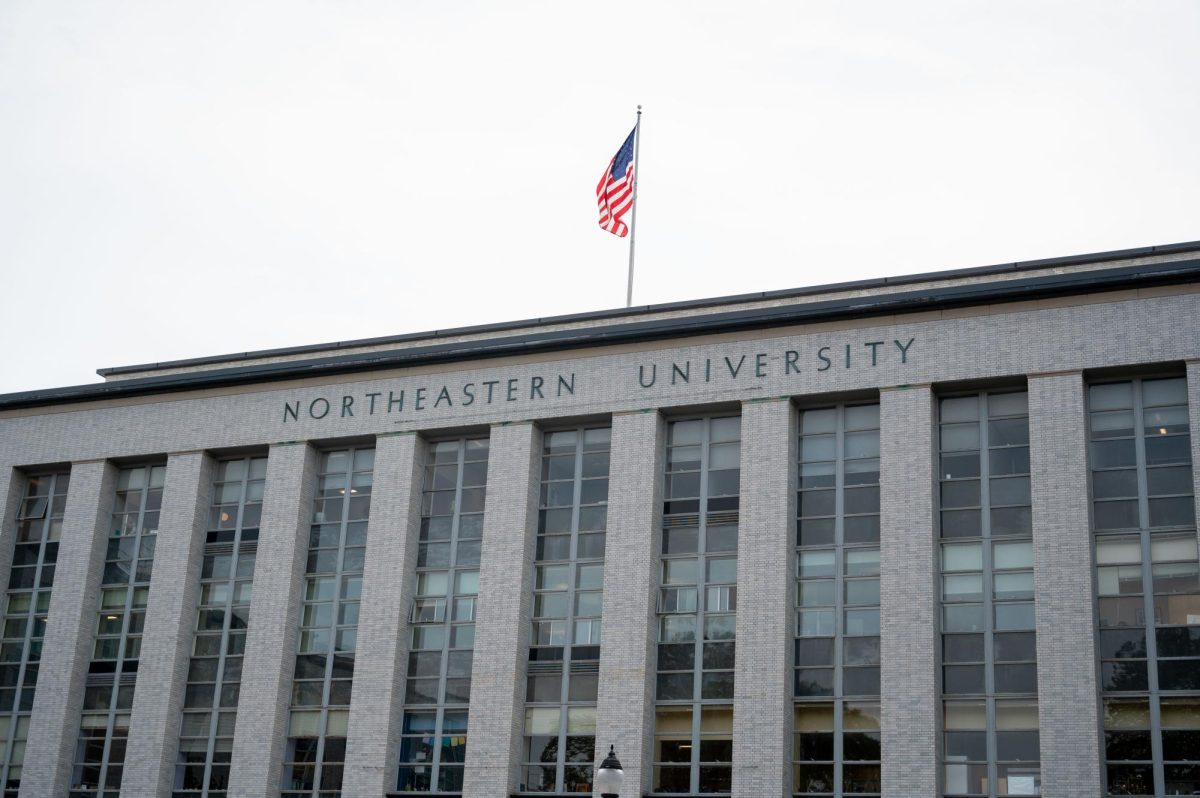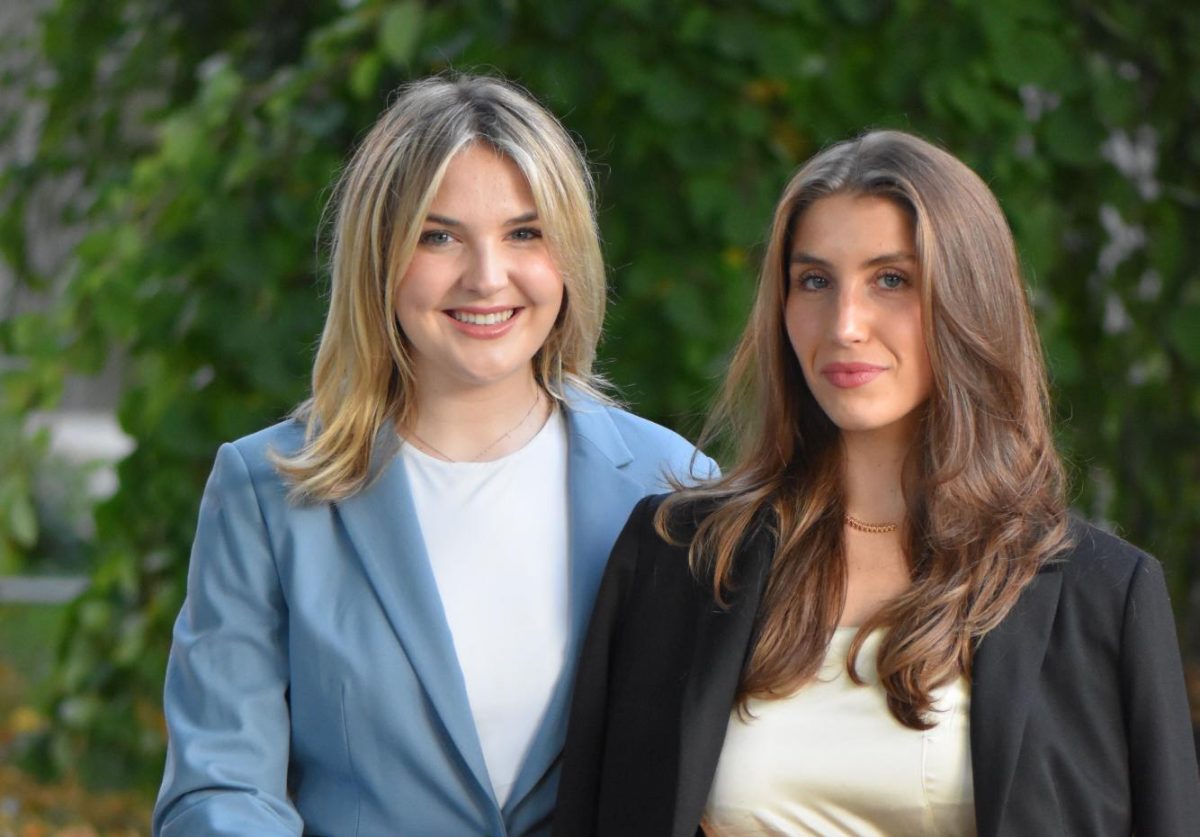By Kristen Oliveri and Jen Nelson
Almost every student at Northeastern experiences it — middler year writing. After eight arduous hours of work in Snell Library, she headed home and on her way a friend called. He asked her to stop by his apartment, so she did, like she had many times before. But this time was different. This visit changed her life — her “friend” raped her.
As audience members listened intently to this rape survivor’s story, many were moved to tears. The speaker, who refers to herself as a survivor rather than a victim, is not a national advocate for rape prevention and education. Instead, this woman is a Northeastern student.
The student was raped by someone she knew and continues to see everyday on campus. Although this woman shared her identity with those in attendance, The News chose not to publish her name.
The fact that this student knew her attacker is not out of the ordinary for most college-age sexual assault victims. Women between the ages of 16 and 24 are at the greatest risk of being raped, according to the Boston Area Rape Crisis Center.
“On college campuses the number [of victims who know their attacker] jumps to 90 percent,” said Sexual Assault Coordinator Laura Weiss.
Being a woman of strong faith, she found herself questioning the role God played in her life at the time of the rape.
“God is supposed to be here to protect me, and this happened to me,” the student said. “It was like he turned his back on me too.”
After the incident, a friend took her to the hospital where evidence was collected to prove that the assault was in fact a rape. The student stressed how much it meant to her that her friends remained non-judgmental throughout her healing process.
“All I kept saying to my friends was ‘listen to me,’ she said.
Even though her friends urged her to press charges against her attacker, she has not. She does not want her parents to know of the rape, and believes that the court process would not allow her to move on with her life. Even though her attacker is a student at NU, who she sees regularly, she stands by her decision.
The Latin American Student Organization (LASO) along with 10 other student organizations decided to let this survivor’s voice be heard in a forum entitled “Escaping Rape: Breaking the Barriers of Ignorance” on Wednesday, Nov. 5.
The forum consisted of a panel of guest speakers: Student Government Association President Michael Romano, Medical Advocacy Coordinator and Counselor for the Boston Area Rape Crisis Center (BARCC) Sharon Imperato, Director of the Counseling Center at NU Edward Hattauer, Sexual Assault Coordinator Laura Weiss and the rape survivor. Each panelist discussed different aspects of rape, such as prevention and rehabilitation.
The collaborating student groups created an activity for the audience members as they arrived to the forum. Audience members were asked to check underneath their seats for a red card. LASO President Gilberto Osorio demonstrated to a stunned audience that one out of every four people will become a victim of rape in their lifetime.
Osorio introduced newly appointed Sexual Assault Coordinator Laura Weiss, who has already begun taking steps to create a safer environment for NU students, such as setting up counseling sessions for family and friends of victims as well as the victims themselves, in order to begin the healing process.
“For every 1,000 college students, 35 will experience attempted or completed rape,” Weiss said. She also stressed that sexual assault is not only a woman’s issue, describing rape as “gender neutral.”
“Rape is not about sex,” Weiss said. “It’s about power and control.”
Weiss praised NU for its initiative in raising awareness about sexual assault on campus.
Hattauer acknowledged the difficulty in constructing an open forum based upon sexual assaults.
“This is not a topic that’s easy to talk about,” Hattauer said.
He urged the audience to not give up hope and to someday strive to live in a community where “sexual assault is an exception,” as opposed to an everyday occurrence.
“Sexual assault affects a person’s whole life,” Imperato said. She went on to speak of the different resources that BARCC offers for survivors of rape, including STD medications as well as HIV and pregnancy prevention. Imperato offered advice for anyone who is a victim of sexual assault.
“Find some sort of resource and someone to talk to,” Imperato said.
Hattauer described the various resources that NU provides, including prevention programming and responsive services, and stressed that all information remains confidential.
“Awareness needs to be on a daily basis for this campus,” Hattauer said.
Along with the issue of awareness, the panel also focused on the issue of ignorance from outsiders who have come in contact with rape victims. Imperato said numerous times throughout the forum that the best way to help a rape survivor is to listen to them completely without casting judgment on them.
Students responded well to the forum, inquiring how one can become more involved in the cause.
“I’m glad LASO did this because it informed me of the situation of rape and it helped me realize that it really does happen,” said Samantha Sang, a freshman undecided major.
Vice President of LASO, Nadine Yaver closed the event and informed the audience about future programming.
“We are pushing towards starting a peer hotline so that interested students will be able to educate others about this issue,” said Yaver. “This is just the beginning.”
For more information regarding rape counseling, contact Laura Weiss in 302 Ell Hall or call (617) 373-2142.









